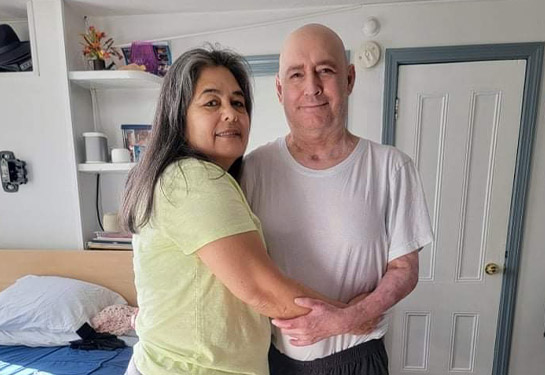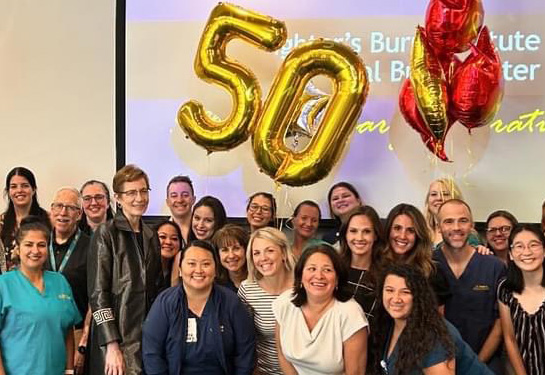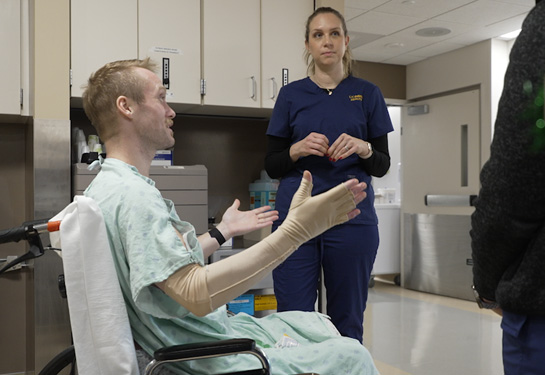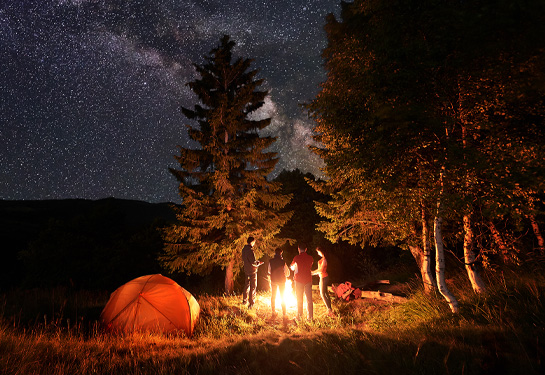“I was dead. Now, I’m ready to go back home.” Burn survivor beats the odds
Family shares appreciation for life-saving care with UC Davis Health team
During any other holiday season, truck driver J. Guadalupe Romo Fonseca would be traveling Northern California roadways, hauling heavy loads alongside FedEx, Amazon and UPS drivers.
But this year, he’s off the road and thankful to be alive.
“For me, I was dead. I don’t remember nothing for six months,” Fonseca recalled.
That was his reality in November 2020 after a propane stove tank explosion tossed him outside his mobile home in Chico. The Guanajuato, Mexico native was making local hauls before his planned return to family in Mexico for Christmas.
Instead, he spent the holidays — and 235 days total — in the Firefighter’s Burn Institute Regional Burn Center at UC Davis Health. His wife, Berta, and their sons Silvestre and Jesus flew in and remained by his side. Alicia and Carlos, his daughter and other son, were not able to be there in person, but their minds and hearts were with their father.
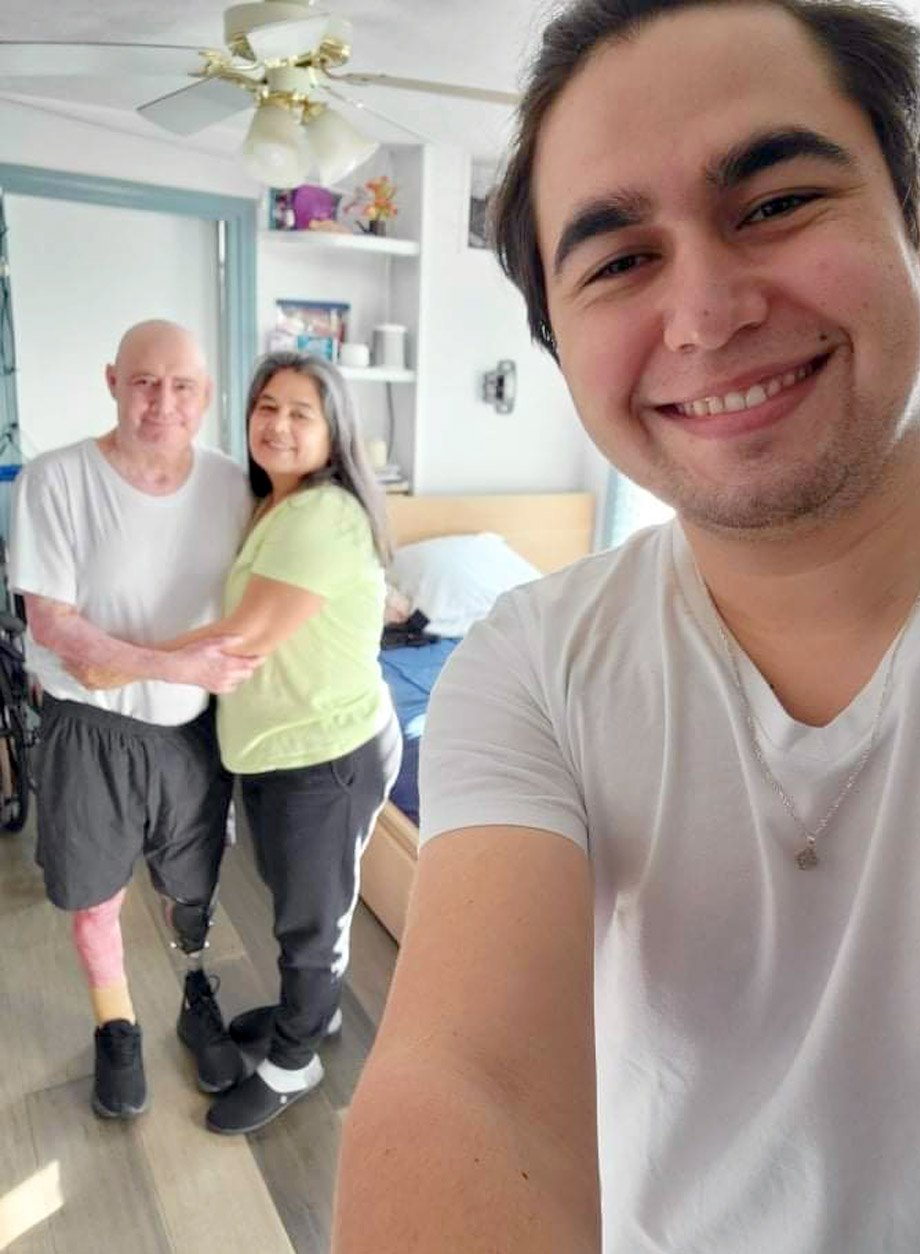
“When my dad’s boss called and told us about dad’s serious burns on his body, we were just like, ‘Oh my God! Maybe it’s not that bad,’” said Silvestre Romo Llamas. “He is the strongest man I ever met. For me, seeing him like that was hard. It was heartbreaking.”
The next six months, Fonseca drifted in and out of consciousness while recovering from third-degree burns over 60% of his body. He suffered a stroke, lost his right leg, experienced multiple bouts of sepsis and underwent more than 10 surgeries.
“Twice I told the family to say their goodbyes. At times, it looked really bad. And then he pulled through. He pulled through so many times,” said Marianne MacLachlan, a burn center registered nurse.
Angels on earth
While Fonseca fought for his life, his family found support in MacLachlan and the team of nurses, therapists and support staff in the Burn Center.
“It was so much love they were showing to my dad. They had great teamwork,” Llamas explained. “They were taking care of my dad but also taking care of us. They were angels for us.”
The Burn Center team consists of more than 25 experts: physicians, nurses, researchers and administrative personnel who support patients and families in the largest burn treatment center in Northern California.
“Burn injuries occur quickly, but healing the physical and mental aspects takes time, hard work and a dedicated team,” said Tina Palmieri, chief burn surgeon. “Patients and families spend many days in the hospital, with multiple operations, dressing changes and physical therapy sessions. We work with them to envision what the patient can become and then help them get there. Our goal goes beyond survival: it is about helping the patient live a quality life.”
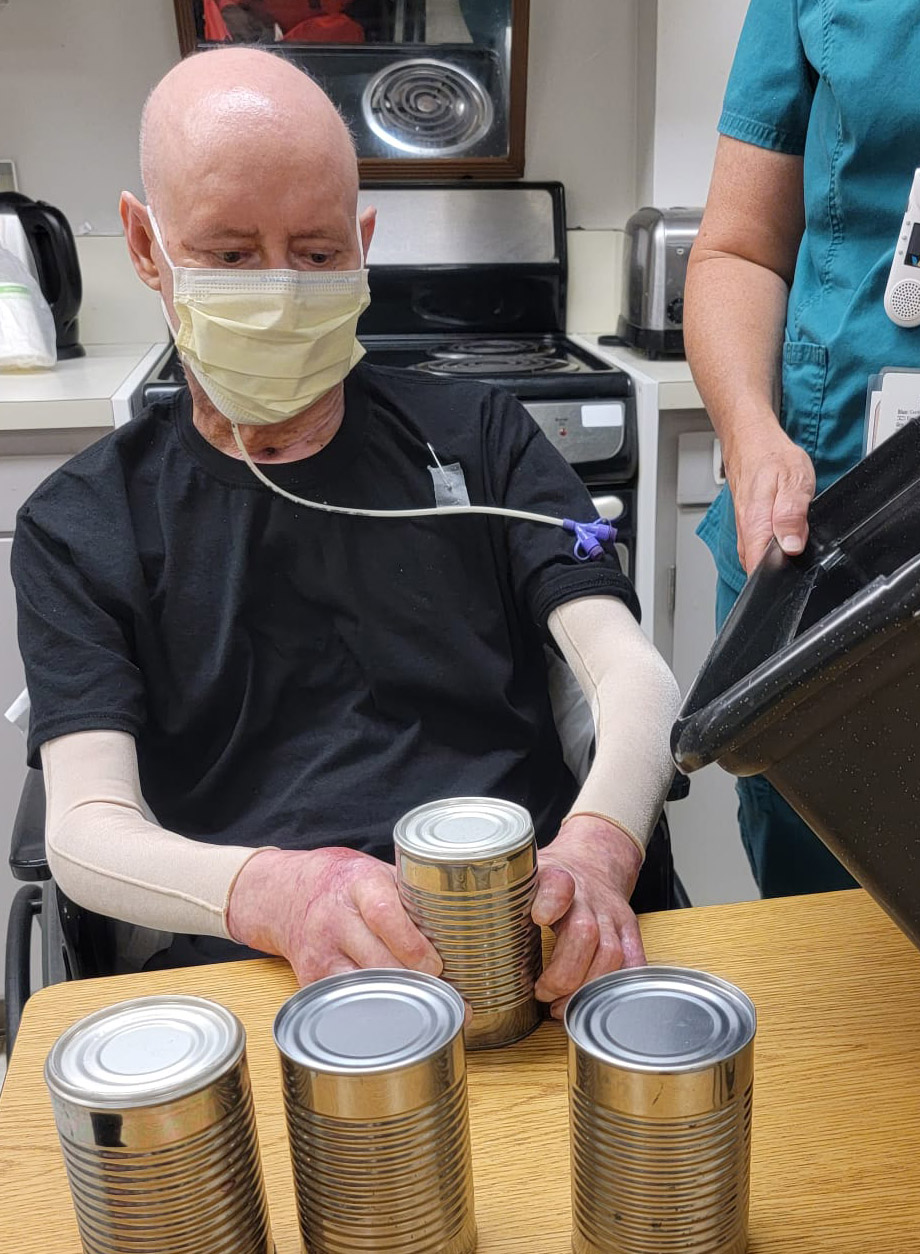
While it’s their job to care for those with serious burn injuries, doctors and nurses believe their role extends beyond the patient.
“When you have a patient who’s very sick and not interactive with you, you do all you can to care for them, but you’re also caring for the family. They become the patient, too,” added MacLachlan.
MacLachlan added that of the many patients she has tended to over the years, this family was special.
“I’ve never seen such a beautiful connection with a family. Regardless of whether you speak the same language or not, compassion and love are the same,” she said.
As the only nurse on the unit fluent in Spanish, Adrian Montano bonded with the family and helped them navigate every challenge they faced.
“Everything that could have gone wrong did. But they stood by him and were there every day and very appreciative of staff,” Montano said. “You don’t see families like this very often, not to that extent. Every day they took the time to interact with everyone and get to know everyone.”
Once Fonseca was out of the woods and his discharge was imminent, his family surprised those who had cared for them with an unexpected thanks — handmade cards, created by Jesus Romo Llamas, for the 92 nurses, therapists, physicians and various other staff who tended to their needs.
“The cards were just a little token of appreciation for all the intensive work I saw happening in the ICU. Staff there gives everything they have so patients and family have another opportunity to be together. I wish I can give more than cards back,” he said.
“Every so often we’ll get something from a family. But it’s very unusual for them to go out of their way to make something individual for everyone,” Montano said.
“It’s amazing what you can do for people when they trust you,” added MacLachlan. “In 20 years, I’ll remember them. These are the people who stick with you.”
Stepping into the future
The compassion and care from UC Davis Health nurses not only paved the way for Fonseca’s recovery, they made an indelible impression on Silvestre Romo Llamas and his future.
“I’ve never liked hospitals to be honest, but now I’m thinking about being a nurse,” he said. “It’s incredible how you feel in this situation in such vulnerable moments. I want to help people.”
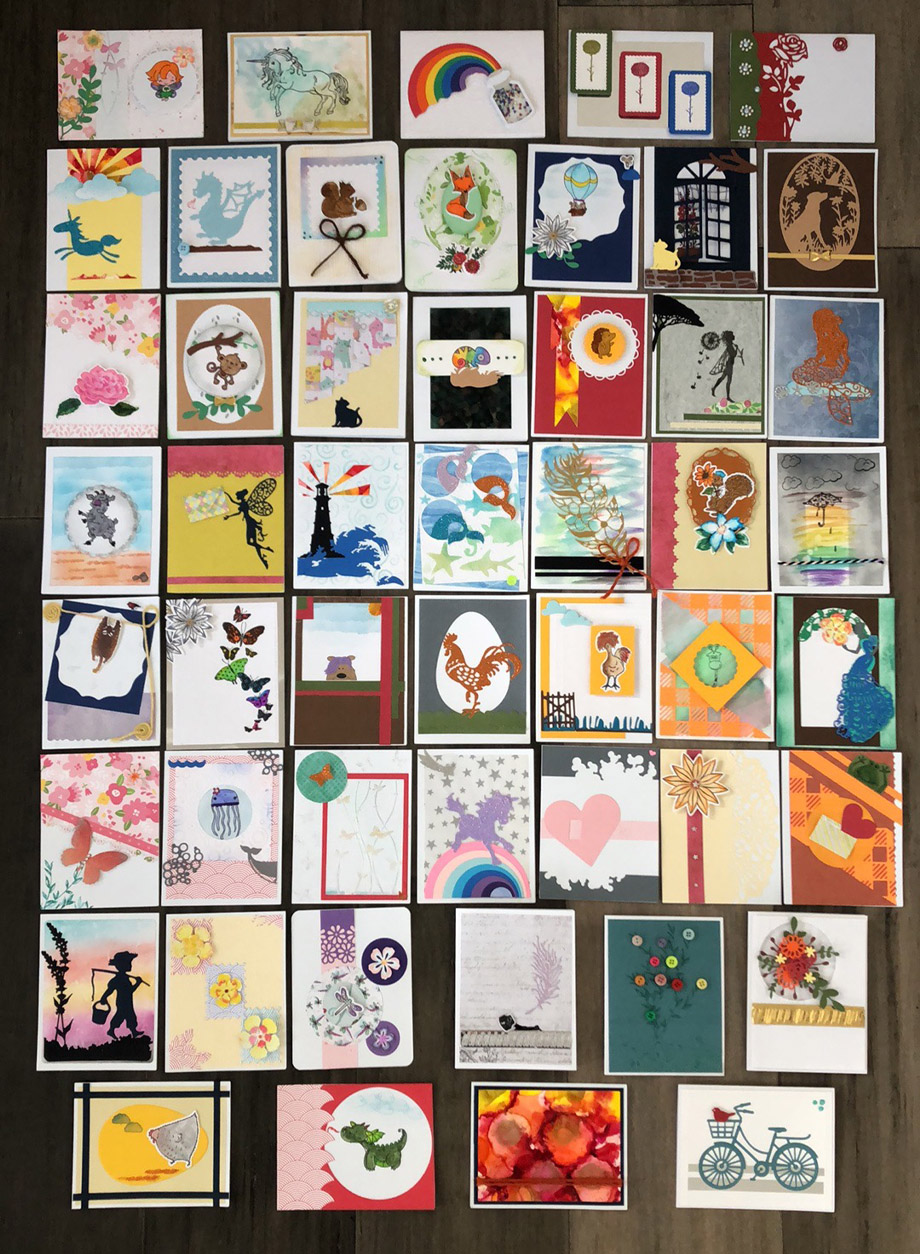
More than a year after that fateful day when an explosion rocked this family’s world, Silvestre Romo Llamas is taking a home health aide course and Fonseca is learning everything again.
“Since I got out of the hospital, everything was new for me again,” Fonseca said. “I’m doing a lot better. I got my prosthesis and I’m taking my first steps.”
Fonseca says his future, most likely, will not include driving a big rig. He hopes it includes a return home. But for now, gratitude: “This Christmas has special meaning, to be thankful of everything that’s happened through the year.”
Now they look forward to next year when they can return home to Mexico. And they stay in touch through Facebook with the team who healed them.
It’s amazing what you can do for people when they trust you. In 20 years, I’ll remember them. These are the people who stick with you.—Marianne MacLachlan, UC Davis Health registered nurse

